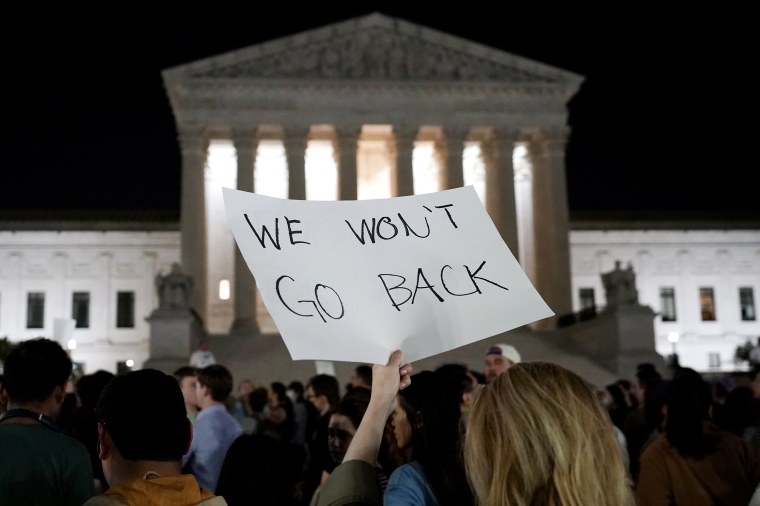The Supreme Court's apparent draft abortion ruling is the beginning, not the end, of a conservative-dominated bench reversing federal protection for the rights of women and minorities, critics said in the hours after it surfaced Monday night.
The draft, obtained and published by Politico, shows a Supreme Court majority poised to overturn the landmark 1973 Roe v. Wade opinion that prohibited states from outlawing abortion.
That alone is a seismic shift in the nation's cultural landscape that promises to send political aftershocks through the midterm elections and beyond.
But Justice Samuel Alito's argument also creates a manual for high court conservatives to give power back to states to limit many more individual rights. Like abortion, rights involving same-sex intimacy and marriage, interracial marriage, and contraception are ensured by past interpretations of the 14th Amendment — such as the one the new decision would overturn.
“I fear that the court is on a course to roll back all kinds of protections to back at the time of the founding, when women and Black people had no rights,” said Kim Wehle, a constitutional law professor at the University of Baltimore School of Law.
In a careful balancing act, Alito drew a distinction between abortion and other rights now guaranteed by the 14th Amendment. Abortion is "fundamentally different," he wrote in defending a Mississippi statute that would ban the procedure after 15 weeks, "because it destroys ... what the law now before us describes as an 'un-born human being.'"
Alito added that none of the other cases "involved the critical moral question posed by abortion."
Full coverage of abortion rights and the future of Roe v. Wade
Elliot Williams, a former Justice Department official in the Obama administration, tweeted Monday night that there's a short distance from Alito's reasoning to the court reversing itself again on "a host" of other individual rights.
"You don’t need to read too far between the lines of Alito’s draft to see a rationale for overturning or weakening Griswold (the right to contraception) Obergefell (same-sex marriage) Loving (interracial marriage) Lawrence (consensual sex acts)," Williams wrote, using the familiar names for major Supreme Court opinions.
During a virtual news conference in March, Sen. Mike Braun, R-Ind., said he would be fine with states having the power to limit interracial marriage. His office later issued a statement in which he said he "misunderstood" the question.
Many Republican lawmakers, including Senate Minority Leader Mitch McConnell, R-Ky., have argued that the court erred in guaranteeing the right to same-sex marriage — contending, as Alito does with abortion, that the matter should be decided by voters.
But with a 6-to-3 majority on the Supreme Court, conservatives don't need Congress, the presidency or public support to limit individual rights. Indeed, the pending upending of Roe v. Wade comes at a time when Democrats have won the popular vote in seven of eight presidential elections, control the White House and both chambers of Congress, and agree with a majority of the public that abortion should not be outlawed.
On "Morning Joe" on Tuesday, Rep. Jim McGovern, D-Mass., said the opinion demonstrates that justices are out of touch with the American people.
“This Supreme Court has this twisted, dystopian view of America,” McGovern said before invoking a popular novel about a society that subjugates women. “I think they, they want to turn this country into ‘The Handmaid’s Tale.’”
In the nearly 50 years since Roe v. Wade was decided, conservatives have looked to every available venue to advance the cause of prohibiting abortion. Most often, that has occurred among state legislatures, many of which have produced increasingly restrictive abortion bans like the Mississippi law before the Supreme Court now.
"There’s been restrictions coming gradually for a long time, and there had been a whole lot of signs in recent years that we were approaching this threshold, though it was hard to believe that we were actually going to cross it," said Marjorie J. Spruill, distinguished professor emerita at the University of South Carolina and an expert on American women's rights movements.
Spruill said the court may not stop at abortion.
"I’m afraid that reproductive rights in general will be under fire, as well as abortion," she said.

